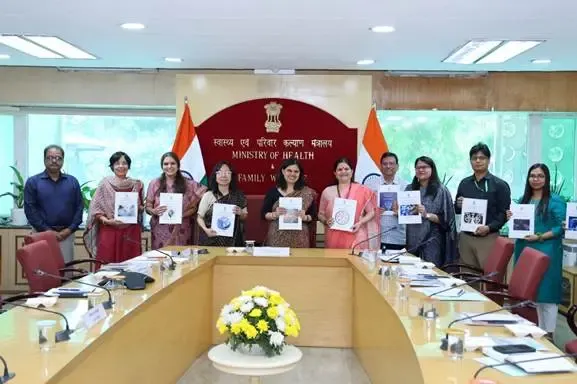Government Introduces New Curricula to Enhance Healthcare Professional Standards

Synopsis
Key Takeaways
- Competency-based curricula introduced for 10 healthcare professions.
- Focus on producing globally competent professionals.
- Enhanced training aligns with industry needs.
- Supports the vision of Swastha Bharat.
- First phase of the rollout under NCAHP Act, 2021.
New Delhi, April 23 (NationPress) The government has introduced a new set of competency-focused curricula for 10 allied and healthcare professions, aimed at cultivating globally proficient professionals to tackle the escalating incidence of diseases and the rising demand for allied health services.
The Union Ministry of Health and Family Welfare, working in conjunction with the National Commission for Allied and Healthcare Professions (NCAHP), has unveiled these new curricula.
Health Secretary Punya Salila Srivastava emphasized the government’s unwavering dedication to enhancing capacity building and elevating the quality of education and training throughout the healthcare sector.
She pointed out that “the thorough revision and standardization of the curricula signify a critical advancement toward ensuring consistency in educational content and delivery”.
“India is equipping its healthcare professionals not only for the domestic landscape but also on a global scale. The curricula introduced today will establish a benchmark for the quality of healthcare professionals across diverse fields,” she stated.
Highlighting the significance of the professions for which the new curriculum has been instituted, Srivastava remarked that “these professions are vital for preventive, promotional, curative, and rehabilitative healthcare”.
This initiative is anticipated to greatly boost the effectiveness of skill-based training, align educational outcomes more closely with industry requirements, and foster enhanced career mobility and professional acknowledgment for allied health professionals throughout the nation.
She further added that “the success of these curricula hinges not just on their design and content but also on the robustness of the systems that facilitate their implementation”.
“This encompasses adequate institutional readiness, faculty training, infrastructure enhancement, and ongoing monitoring to maintain quality standards. Digital versions of the curriculum will be crowd-sourced to ensure accessibility for capacity building, thus promoting the vision of Swastha Bharat,” she noted.
Dr Yagna Unmesh Shukla, chairperson of NCAHP, stated that “these curricula will ensure uniformity and represent a significant move towards realizing the vision of ‘One Nation, One Curriculum’. It is essential to acknowledge that this marks the initial phase of the curriculum rollout.”
Additionally, the curricula have been meticulously realigned with the regulatory standards and guidelines specified in the National Commission for Allied and Healthcare Professions (NCAHP) Act, 2021.








